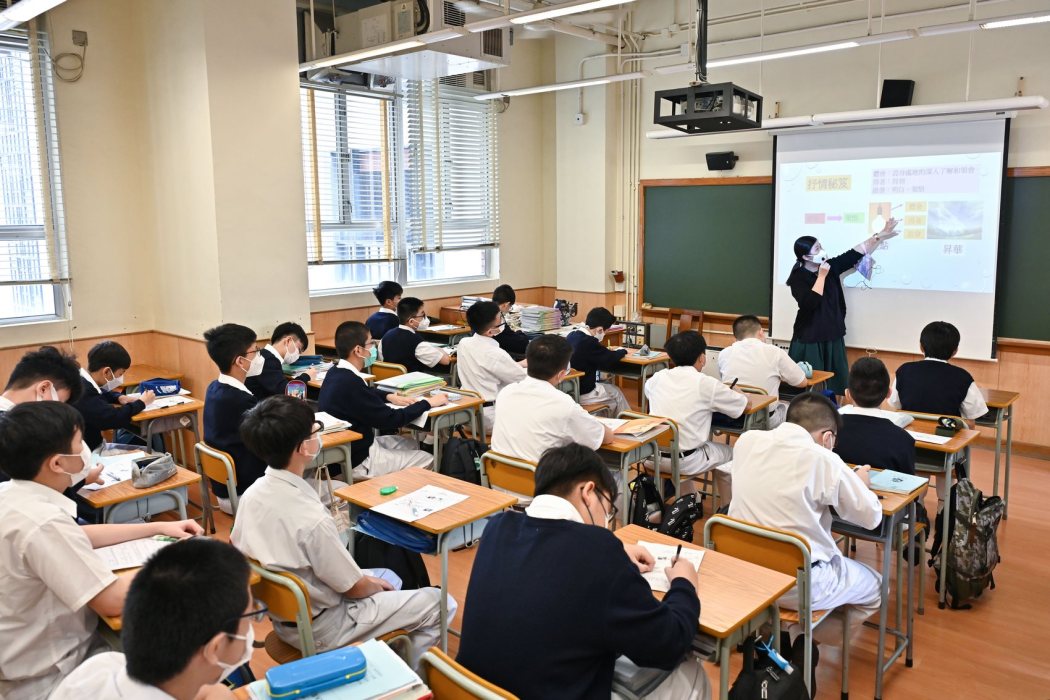Government-subsidised schools in Hong Kong must include clauses relating to safeguarding national security in contracts and quotations, according to the Education Bureau’s updated guidelines on schools’ procurement procedures.

The Guidelines on Procurement Procedures in Aided Schools were updated on Tuesday, and contained a new section not seen in the old version on “Safeguarding National Security.”
The guidelines said it was Hong Kong’s “constitutional duty” to safeguard national security, and that school staff of all levels “must effectively prevent” any activities endangering national security.
Schools should incorporate clauses into documents relating to quotations or tenders that would allow suppliers to be disqualified and contracts terminated “in the interest of national security,” the guidelines read.
According to the clauses, schools may disqualify a supplier if it “has engaged, is engaging, or is reasonably believed to have engaged or be engaging in acts or activities that are likely to cause or constitute the occurrence of offences endangering national security” or to “protect the public interest of Hong Kong, public morals, public order or public safety.”
In addition, the school may immediately terminate the contract if the contractor has engaged in, is engaging in, or is reasonably believed to have been involved in acts or activities endangering national security.
Based on schools’ ‘judgement’
The guidelines said:” Schools should exercise their professional judgement, maintain a high degree of sensitivity and prudently assess any potential national security risks or issues that may be involved in every stage of the procurement.”
However, the guidelines did not include how schools should determine whether a supplier or contractor posed a threat to national safety.

Chu Kwok-keung, a Legislative Councillor representing the education industry, told HKFP : “Schools may not have the ability to examine the information of a company to know if it has violated national security laws.”
“If it is that easy to find [that the company has breached the law], the police will have already arrested them.”
He said schools could request suppliers or contractors to declare whether they presented a threat to national security in their contract.
When approached by HKFP, the Education Bureau said: “Schools should exercise their professional judgement and maintain a high degree of sensitivity.”
It added: “They should look at actual situations, such as relevant facts, behaviours, intentions and evidence, to carefully assess whether their suppliers or contractors have been involved in or engaged in acts or activities that endanger security.”
National security terms
In 2022 and 2023, different government departments implemented new terms regarding national security. Last September, local media reported that the Government Logistics Department included terms regarding national security in tender documents.
In February, the Lands Department included a new national security provision in its terms and conditions for land sale and short term tenancy from November.

In June 2020, Beijing inserted national security legislation directly into Hong Kong’s mini-constitution – bypassing the local legislature – following a year of pro-democracy protests and unrest. It criminalised subversion, secession, collusion with foreign forces and terrorist acts, which were broadly defined to include disruption to transport and other infrastructure.
The move gave police sweeping new powers, alarming democrats, civil society groups and trade partners, as such laws have been used broadly to silence and punish dissidents in China. However, the authorities say it has restored stability and peace to the city.
Support HKFP | Policies & Ethics | Error/typo? | Contact Us | Newsletter | Transparency & Annual Report | Apps
Help safeguard press freedom & keep HKFP free for all readers by supporting our team
























